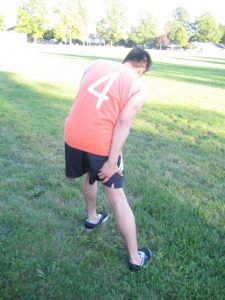A pinched nerve in the hip is due to damage to the nerve such as compression, stretching and constriction. This area of the body is responsible for movements of the body and injury to the area causes severe pain. A pinched nerve in the hip is usually caused by a herniated disc or other conditions involving the spine.
Indications of a pinched nerve in the hip
- Pain that can be felt at the hips and spreads down the leg
- Weakness of the leg
- Tingling sensation as though the leg is “sleeping”
- Inability to move
Pain that can be felt at the hips and spreads down the leg.
Treatment
- Ensure that the individual can rest. Minimize exposing the area to heat such as saunas, hot baths and heat packs and excessive movements.
- Avoid performing activities that cause further damage to the affected area on the first 24-72 hour.
- Wear a splint and bandages to immobilize the affected area and prevent unnecessary movements.
- Apply a cold compress on the affected area by wrapping an ice pack using a damp towel. Apply on the area for at least 15-20 minutes every 2-3 hours every day. The cold lessens the inflammation and numbs the pain.
- Apply heat on the area to increase the flow of blood and for fast healing of the condition. Use a heating pad or hot water bottle for at least 15 minutes. Another alternative is to take a hot bath or soak the affected area in hot water to relax the muscles.
- Elevate the affected hip above the level of the heart. When lying down, place at least 1-2 pieces of pillows under the hip so it is elevated to increase the flow of blood in the damaged area and promote fast healing of the condition.
- Gently massage the area using warm oil to relax the pinched nerve. Massage lessens the spasms and tension in the nerves.
- Seek the help of the physical therapist for some rehabilitation exercises for strengthening and flexibility of the hip.
- Take the prescribed over-the-counter pain medications such as ibuprofen to lessen the pain and inflammation.
- Perform regular low-impact exercises such as walking or swimming to move the muscles while enduring less stress in the affected nerves in the tendons and joints.
- Maintain good posture when performing exercises or resting to lessen tension of the pinched nerve.
- Avoid being overweight to prevent a pinched nerve.
- Maintain a diet for strong bones and protection against osteoporosis. Take vitamin supplements such as calcium and vitamin D for strength and defense against diseases and disorders.

